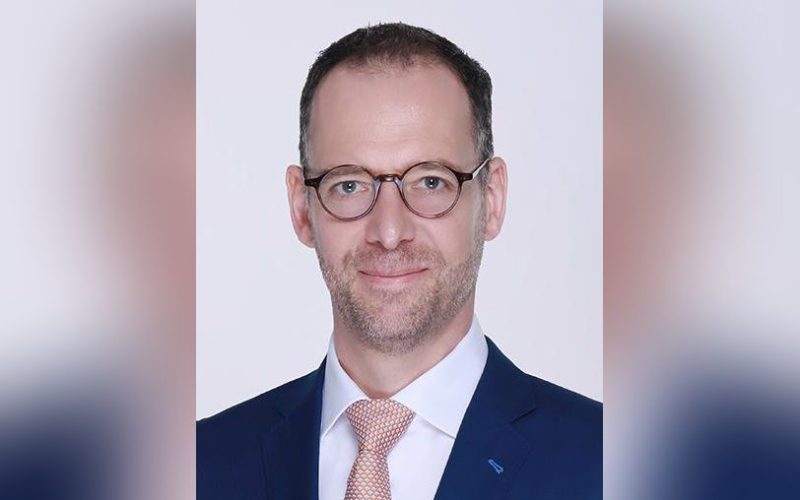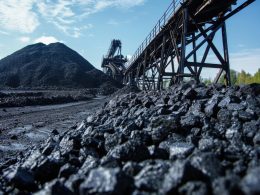Nexif Ratch Energy (NRE) has secured the Platinum Award for Asia’s Best Sustainability Report (SME) at the 11th Asia Sustainability Reporting Awards (ASRA) — the highest accolade in its category.
In this exclusive interview, Cyril Dissescou, Chief Executive Officer, reflects on what the win means for the company’s leadership and long-term strategic direction. “Winning the Platinum Award matters because it recognises discipline more than a communications exercise,” he says, emphasising how the achievement validates NRE’s efforts to embed sustainability into governance, board oversight and project-level implementation. Dissescou discusses the role of sustainability in driving bankable renewable energy projects, the importance of transparent reporting in emerging markets, and how alignment with global frameworks such as the IFC Performance Standards, ISSB and TNFD is shaping NRE’s pathway towards resilient and responsible growth.
Congratulations on your company’s success at the Asia Sustainability Reporting Awards. What does this achievement signify from a leadership perspective?
Winning the Platinum Award at the Asia Sustainability Reporting Awards matters because it recognises discipline rather than simply communication. It reflects our commitment to integrity, transparency and accountability at every level of our operations, and demonstrates our progress as an organisation in relation to ESG — from developing project-level ESG systems to embedding sustainability into corporate governance, board oversight and capital allocation. It also validates the work undertaken by our teams across Vietnam, the Philippines and Singapore to ensure that our disclosures reflect real conditions on the ground. It reinforces that transparency and rigour are at the heart of our company.
How does sustainability fit within your overall business strategy and long-term value-creation goals?
In our sector, sustainability is not a side agenda; it is the core business strategy as we develop renewable energy projects. NRE’s long-term value creation depends on developing projects that not only meet national renewable energy objectives but also contribute to decarbonisation and social inclusion. By aligning our strategy with the IFC Performance Standards, GRI and SASB, we ensure that all our projects — from hydropower to wind and solar — create measurable economic, environmental and social benefits.
What role do you personally play in setting and steering the sustainability agenda within the company?
As CEO, my role is to ensure that sustainability remains a business imperative on the same level as operational or financial matters. I chair our monthly ESG reviews, regularly monitor ESG performance and ensure that our sustainability objectives are embedded into our decision-making processes. Our management structure integrates ESG into every layer — from project directors to our regional ESG team — so that our actions consistently reflect our policies. I also encourage collaboration between finance, operations, development and ESG functions to ensure that sustainability does not operate in isolation.
Many CEOs now see sustainability as a competitive advantage. How has it shaped innovation, market growth or stakeholder trust for your organisation?
In emerging markets, sustainability is a clear differentiator because it directly determines whether a project can be financed and built. Many developers may secure land or obtain permits, but far fewer can demonstrate the level of social acceptance, environmental discipline and compliance with IFC standards that lenders require. Our development and construction practices — from early community engagement to rigorous environmental planning and contractor oversight — have given us a consistent track record across hydro, wind and solar. This is precisely what financiers and investors expect.
It is why we are increasingly regarded as a platform of choice: partners know that projects developed under our standards are bankable, resilient and aligned with global expectations. As the region moves towards stricter scrutiny, this credibility becomes an even stronger competitive advantage for NRE.
Why do you believe sustainability reporting is vital for corporate leadership today?
Sustainability reporting is no longer optional; it is a critical assessment tool for investors. A sustainability report forces a company to quantify its risks, measure progress and identify gaps. For leadership, this is invaluable: it creates internal discipline, aligns teams around shared priorities and builds trust with lenders, regulators and communities. In Asia, where expectations are rising quickly, transparent reporting is essential for being taken seriously as an operator.
How do you ensure that sustainability performance remains a board-level priority amid other business pressures?
At NRE, ESG is a standing agenda item at every Board meeting. We use integrated ESG KPIs that feed into both performance evaluations and incentive structures. We also link ESG performance to key corporate milestones — such as project financing, audits and lender reviews — ensuring that sustainability is consistently part of strategic decision-making. This approach ensures our Board members are not only informed but actively engaged in overseeing our sustainability journey.
Could you share an example of a major decision or investment where sustainability considerations played a decisive role?
Our investment in biodiversity and climate resilience initiatives for the Song Giang project is a clear example. These measures were implemented to comply with IFC Performance Standard 6 and to ensure we met the stringent requirements of international lenders. By taking these actions early — such as conducting independent biodiversity studies, implementing community reforestation and enforcing ecological monitoring — we secured both environmental integrity and financing approval. This demonstrates that sustainability is not a cost, but a critical enabler of project bankability and long-term stability.
As regulatory frameworks such as ISSB gain traction, how do you view their impact on Asian businesses?
Frameworks such as ISSB and TNFD will raise the bar for disclosure quality across Asia. Rather than viewing this as a burden, we see it as an opportunity to enhance alignment and credibility. For NRE, these frameworks will help bridge the gap between financial and sustainability reporting. Our alignment with GRI and SASB already provides the foundation for integrating climate-related disclosures (under IFRS S2) and nature-related disclosures (under the TNFD LEAP framework). This will allow Asian businesses, including ours, to communicate value creation and resilience more effectively to global investors.
Looking ahead, what are your top three sustainability priorities for the next three years?
• Strengthen nature and climate resilience across our hydro, solar and wind projects, with measurable biodiversity and ecosystem outcomes.
• Link ESG performance directly to financing, procurement and contractor management, ensuring ESG considerations profoundly influence commercial decisions.
• Improve climate-risk disclosure and data assurance in line with ISSB and TCFD expectations.
What message would you like to send to your peers and the wider business community about responsible leadership in this decisive decade for climate and sustainability?
Responsible leadership means acting now, not later. Southeast Asian markets are evolving rapidly, and the renewable energy companies that succeed will be those that integrate sustainability into day-to-day operational practice. My message to peers is straightforward: lead with evidence, act with purpose and measure with integrity. Profitability and responsibility are not mutually exclusive — they reinforce each other. If we, as industry leaders, demonstrate that clean growth and social inclusion can progress together, we can redefine what sustainable development looks like for Southeast Asia and beyond.




















